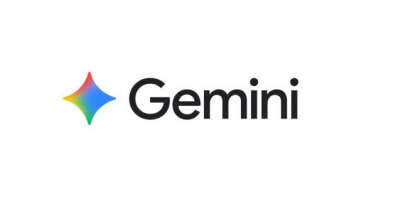Apple’s Big Bet on AI: Siri 2.0 in the Making
Apple is reportedly in advanced discussions with Google to integrate Apple Gemini AI Siri technology into Siri, its flagship voice assistant.
The move signals Apple’s determination to close the gap with competitors like OpenAI’s ChatGPT and Amazon’s Alexa, both of which have surged ahead in AI-powered voice interactions.
If finalized, the partnership could reshape Siri into a far more intelligent and versatile assistant, positioning Apple Gemini AI Siri at the center of the next wave of AI innovation.
The talks revolve around deploying a Gemini-compatible model on Apple’s own servers, ensuring Siri becomes faster, more contextual, and capable of handling complex tasks.
For Apple Gemini AI Siri, which has historically preferred building its ecosystem in-house, collaborating with Google on such a high-profile AI initiative highlights both urgency and ambition.
Why Apple Needs Gemini for Siri
Siri, launched in 2011, was the first mainstream AI voice assistant. However, it has been overshadowed by rivals that evolved more quickly.
While ChatGPT and Google Assistant have demonstrated the ability to understand context, hold natural conversations, and perform multi-step reasoning, Siri often struggled with rigid commands and limited scope.
By tapping into Gemini, Google’s cutting-edge generative AI platform, Apple Gemini AI Siri seeks to leapfrog these limitations.
Gemini’s advanced capabilities—complex reasoning, natural dialogue, and multimodal understanding—could empower Siri to:
- Handle detailed queries across apps and devices
- Offer richer contextual answers
- Support personalized recommendations in real time
- Interact with users in a more natural, human-like manner
Strategic Implications for Apple and Google
The potential Apple–Google deal carries wide-ranging implications for both companies.
- For Apple: It’s a chance to transform Siri into a competitive AI agent, meeting investor and customer demands for progress in AI.
- For Google: It would mark a commercial win, putting Gemini on millions of Apple devices worldwide, ensuring reach and validation.
With rivals like Microsoft integrating OpenAI models and Samsung deploying AI tools in smartphones, consumer expectations are rising. This partnership offers Apple a faster route to innovation.
Privacy, Control, and Technical Challenges
A major question in this collaboration is data privacy. Apple has built its brand around privacy, unlike data-driven competitors. Ensuring Gemini runs on Apple’s servers—rather than Google’s cloud—would help Apple maintain trust.
Technical challenges remain: integrating Gemini with iOS, ensuring smooth functionality across iPhones, iPads, Macs, and other Apple devices. Compatibility, latency, and efficiency will be key to success.
What This Means for Consumers
For everyday Apple users, Gemini-powered Siri could redefine interactions. Imagine Siri being able to:
- Draft personalized emails or documents
- Plan trips by scanning multiple apps and presenting detailed itineraries
- Provide real-time coaching during workouts using wearable data
- Offer smarter home automation through predictive learning
This could elevate Siri from a basic voice assistant to a true AI companion, potentially setting a new standard in voice-based AI—just as the iPhone once did for smartphones.
The Road Ahead
Industry insiders expect an announcement as early as 2025. Rollout may start gradually, with beta iOS features before full-scale deployment.
If Apple adopts Gemini, it could spark a new AI arms race among tech giants—driven by partnerships instead of siloed development.
For now, the world waits to see if Siri’s long-awaited transformation is finally within reach.









